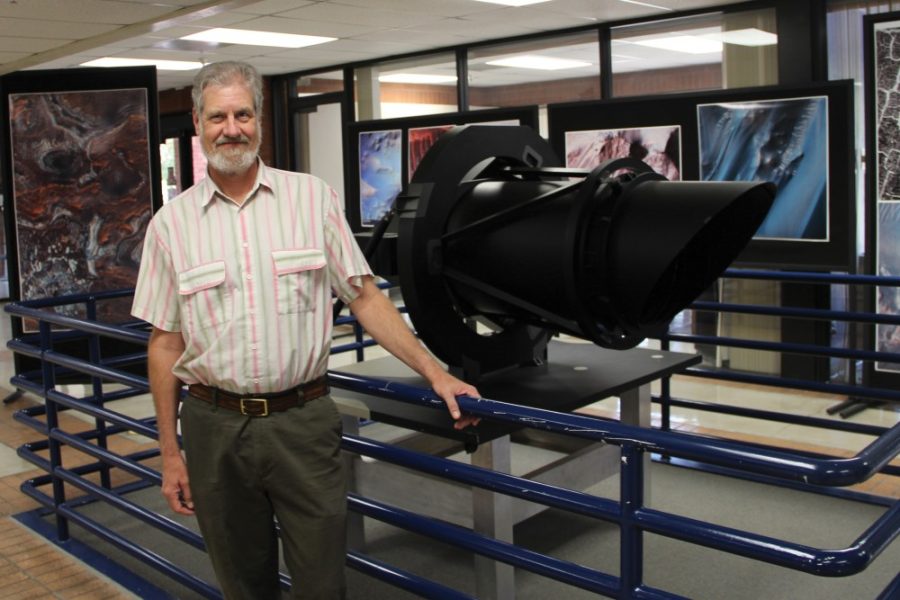The UA-operated HiRISE camera, which takes high-resolution images of Mars while orbiting the planet, may have revealed the location of a long-lost Soviet probe.
Aided by a group of Russian space enthusiasts, the HiRISE team has identified several features that may be hardware from Mars 3. Launched in 1971, the probe successfully landed on Mars before losing communication after about 15 seconds.
The HiRISE camera is attached to the Mars Reconnaissance Orbiter, which was launched in 2005.
The MRO is piloted by Jet Propulsion Laboratory in Pasadena, Calif. The camera takes images with a resolution of two gigapixels, which is 2 billion pixels per image. That kind of resolution is usually only available to the military, said Alfred McEwen, a professor of planetary geology and principal investigator for HiRISE.
The images produced by HiRISE are used to study the geology and meteorology of Mars and scout landing sites for prospective missions. Although more than 29,000 of the massive pictures of Mars have been taken so far, McEwen said that only 2 percent of the planet has been imaged.
The images are checked, processed and released to the public and scientific communities within about a month of being taken, said Ari Espinoza, outreach coordinator for HiRISE.
The camera also shoots existing operations on Mars, as well as the possible locations of lost missions.
“It’s fun. It’s like CSI,” McEwen said. “[We’re] figuring out what happened by taking spy images.”
In 2007, HiRISE targeted the area where Mars 3 was supposed to have landed.
“It seemed like a real long shot because it could have been a much wider area where it could have landed,” McEwen said.
A group of Russian space enthusiasts crowdsourced the images in the hopes of finding Mars 3.
They identified features they believe to be the parachute, heat shield and lander.
However, even with a highly sophisticated imaging device like HiRISE, identifying objects on the surface of Mars is largely guesswork.
“The problem with these images is that the lander, for instance, is about a meter across,” said Davin Flateau, a planetary sciences graduate student who coincidentally began his own search for Mars 3 shortly before the Russian findings were announced. “Unfortunately, there are a lot of rocks that are about a meter across that look a lot like this lander, so it’s very difficult to tell.”
If the features turn out to be Mars 3, it would solve a mystery that has persisted in Russian aeronautical history for more than 40 years. But no one can say for sure. McEwen said he is “51 percent convinced.”
Whether or not the HiRISE team can confirm that it found features of Mars 3, in October 2014, HiRISE will turn its detectors away from Mars and toward a comet that will make a close flyby, in order to study its composition. The camera will get one of the highest resolution images of a comet’s core ever taken.
Danny Pagano, a student validator for the project, said he’s excited to see the images of the comet, which might have formed alongside the early solar system more than 4 billion years ago.
“It’s like opening a tomb that nobody’s been in since it was sealed,” Pagano said.
HiRISE and the MRO have outlasted their expected lifetimes and at some point the hardware will fail. McEwen said he’s not looking forward to that day, but he is satisfied with the work that has been done so far.
“It’s always sad to see something you’ve worked on a long time go,” McEwen said. “But it’s all just bonus time now, and you can’t complain about it ending at any time.”









